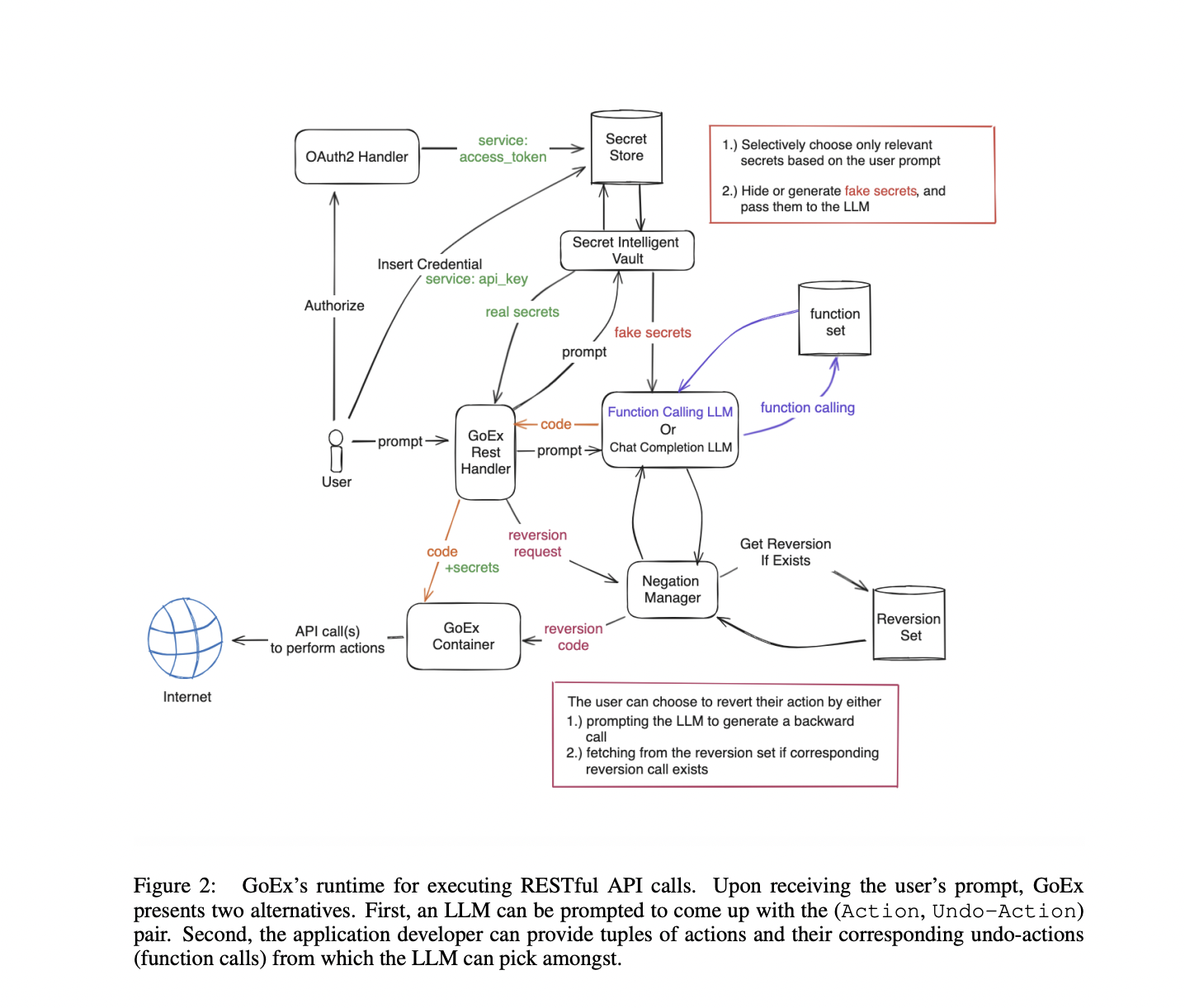LLMs are expanding beyond their traditional role in dialog systems to actively perform tasks in real-world applications. It is no longer science fiction to imagine that many interactions on the Internet will be between LLM-based systems. Currently, humans verify the correctness of the results generated by LLM before deployment due to the complexity of code understanding. This interaction between agents and software systems opens avenues for innovative applications. For example, a personal assistant powered by LLM could inadvertently send confidential emails, highlighting the need to address critical challenges in system design to avoid such errors.
Challenges in ubiquitous LLM implementations span several facets, including delayed feedback, aggregated signal analysis, and disruption of traditional testing methodologies. Delayed signals from LLM actions make rapid iteration and error identification difficult, requiring asynchronous feedback mechanisms. Aggregate results become critical in evaluating system performance, challenging conventional evaluation practices. LLM integration complicates unit and integration testing due to the dynamic behavior of the model. Variable latency in text generation impacts real-time systems, while protecting sensitive data from unauthorized access remains paramount, especially in LLM-hosted environments.
UC Berkeley researchers propose the concept of “post-facto validation of LLM”as an alternative to the “prefacto LLM validation”. In this approach, humans arbitrate the outcome produced by executing LLM-generated actions rather than evaluating the process or intermediate results. While this method poses risks of unintended consequences, it introduces the notions of “undoing” and “harm containment” to mitigate such risks. “Undo” allows LLMs to retract unwanted actions, while “damage confinement” quantifies the user's risk tolerance. They developed Gorilla GoEx Execution Enginea runtime to execute actions generated by LLM, using available software components to evaluate resource readiness and help developers implement this approach.
GoEx presents an execution environment to execute actions generated by LLM securely and flexibly. It presents abstractions for “undo” and “confine damage” to adapt to various implementation contexts. GoEx supports several actions, including RESTful API requests, database operations, and file system actions. It relies on a DBManager class to provide database state information and secure configuration access to LLMs without exposing sensitive data. Credentials are stored locally to establish connections to execute operations initiated by the LLM.

The key contributions of this paper are as follows:
- Researchers advocate integrating LLMs into various systems, viewing them as decision makers rather than data compressors. They highlight challenges such as the unpredictability of LLM, trust issues, and real-time fault detection.
- They propose a “post-facto validation of the LLM” to guarantee the security of the system by validating results instead of processes.
- Introduce “undo” and “damage confinement” abstractions to mitigate unwanted actions in LLM-based systems.
- They introduce GoEx, a runtime that facilitates autonomous LLM interactions, prioritizing security while enabling utility.
In conclusion, this research presents “post-facto LLM validation” to verify and reverse actions generated by LLM together with GoEx, a runtime with undo and damage confinement functions. These aim to ensure safer deployment of LLM agents. They highlight the vision of autonomous systems driven by LLM and describe open research questions. It anticipates a future where LLM-based systems can interact independently with minimal human verification, moving toward autonomous interactions between tools and services.
Review the Paper and GitHub. All credit for this research goes to the researchers of this project. Also, don't forget to follow us on twitter.com/Marktechpost”>twitter. Join our Telegram channel, Discord channeland LinkedIn Grabove.
If you like our work, you will love our Newsletter..
Don't forget to join our SubReddit over 40,000ml
Do you want to be in front of 1.5 million ai audiences? Work with us here
![]()
Asjad is an internal consultant at Marktechpost. He is pursuing B.tech in Mechanical Engineering at Indian Institute of technology, Kharagpur. Asjad is a machine learning and deep learning enthusiast who is always researching applications of machine learning in healthcare.
<script async src="//platform.twitter.com/widgets.js” charset=”utf-8″>






